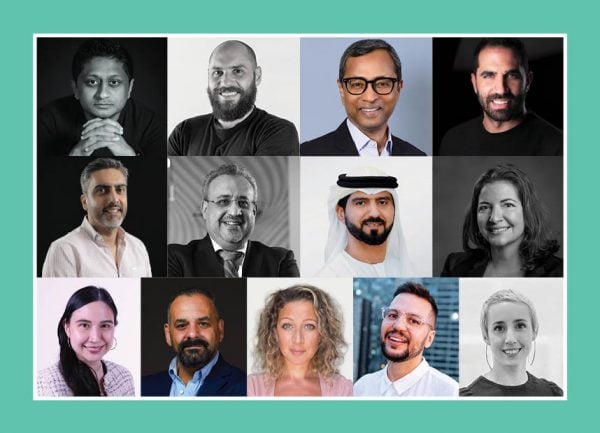
 Cristina Charles
Cristina Charles
Head of growth, Publicis Groupe
No
The IMF predicts that one-third of the world will go into recession. While the most severe recessions will be seen across Europe and China, the rest of the world is not protected. In MENA, we may not face a recession, but we may feel like we are.
Our region faces inflation and devaluation on the individual market level, but we are bolstered by safety and security in other markets. On the whole, the region will remain stable, but on a country level we will face great disparity.
The uniqueness of our economic system and in turn our industry is based on the fact that we operate
within two of the largest sovereign fund economies:
KSA and UAE.
We will see growth from these markets, which will balance out our region. However, there is no company or industry that operates in MENA that will not face hard economic questions around market prioritisation to ensure overall regional economic growth. This gives MENA a more stable footing than individual country markets like the UK. However, no one is an island.
 Khaled AlShehhi
Khaled AlShehhi
Executive director of marketing and communication, UAE Government Media Office
Yes
The answer to this question is in two parts. First, though growth is slowing everywhere to the point of recession in several parts of the world, most forecasts indicate the Middle East will grow faster than the global average. This is particularly true for oil-exporting economies. Governments remain committed to their transformation agendas and will continue to boost their local market.
The second part is about the industry itself. The deceleration of advertising investments and reach on social media platforms, largely fuelled by declining trust, could be the opportunity for local publishers and platforms to reaffirm their worth to advertisers. Investments may not go into media as much, but brands will keep on investing in their marketing. Digital transformation, Baby.
 Manasvi Gosalia
Manasvi Gosalia
Founder, Dejavu Dubai
Yes
Economic pressures from around the world will undoubtedly have an impact on the local industry in the region. However, our market intelligence suggests that all players, big and small, will be minimally affected, due to the operating model of our industry. Due to its unique geographic location, this region is a service hub for brands from across the globe. Pressures from one or two markets are usually offset by business opportunities being available from other markets. For example, if you have a downward trend in spends from EU clients, it is highly likely that local players will be able to maintain their pipeline of service requests from markets such as the GCC, Southeast Asia and Africa. Additionally, the other major factor is the recent boost offered by the KSA government to grow and nurture all sectors to diversify their economy. This has had an enormous positive impact on our industry and will offset any loss of business from other markets.
 Sunil John
Sunil John
President – MENA of BCW and founder of ASDA’A BCW
Yes
While the global economy faces headwinds, the Arabian Gulf states will be one of the few bright spots, being beneficiaries of a supply chain crisis that has seen oil prices rebound dramatically.
The International Monetary Fund estimates that the Middle East’s oil- and gas-producing nations could generate additional revenues of $1.3 trillion over the next four years.
This will deepen the reserves of the region’s sovereign wealth funds, which are increasingly prudent about their global investments and focus on investing more in their national economies to make them less reliant on oil income in the future.
These increased investments in infrastructure will strengthen the diversification of regional economies,which in turn will help create jobs, particularly for youth, and strengthen global trade and investment.
Further, while the GCC economies still rely on oil and gas, these countries also have a role to play in bringing about a cleaner energy future through ambitious initiatives and investments in decarbonisation and energy transition.
With the UAE set to host Cop28 later this year, there will be a stronger focus on climate action, not only in the country but also across the region with Saudi Arabia having committed $2.5bn for the Middle East Green Initiative.
 Khalil Yassine
Khalil Yassine
Head of Unilever Arabia
No
The Covid-19 pandemic and the Russian-Ukrainian war disrupted global supply chains, impacting local and regional industrial communities. The region has taken the challenges and transformed them into opportunities via the implementation of ‘Flexible Protectionism’, a locally nurtured and funded policy in line with the long-term economic interests of the region.
The impact of the reforms has seen the UAE become a financial and investment hub. The unveiling of an inspiring KSA 2030 vision and the recent D33 Strategy, combined with the breakthrough success of the Qatar World Cup 2022, is leading to increased attention in the Arabian region as a source of growth and high potential.
Every headwind is supported by a tailwind. In this region, specifically, the economic challenges can be overcome via increased non-oil exports, increased foreign direct investments, enhanced economic integration between all GCC countries, the establishment of more free zones to compete with Asian manufacturing and increased support of the local industry.
 Maria Poulton
Maria Poulton
Managing director, UM UAE
No
No one is immune to a global recession, and MENA markets will be affected at varying levels across the region. Despite an expected slowdown in economic growth, continued government spending on long-term, large-scale projects combined with oil prices suggest a positive outlook, particularly for the GCC. As such, we are seeing ad spend from domestic clients increasing and we expect they will be bullish in capturing consumer attention. Global advertisers, on the other hand, are more likely to see an impact on their budgets. So, while inflation is forecast to ease, consumer spending has tightened and we need to focus on driving brand value.
 Jo Webber
Jo Webber
Vice president – client relations, Spiro
No
Working for a global company, we are exposed to the economics of the regions in which we operate. We have major hubs across the USA, Europe, UK, UAE and KSA with operations worldwide.
Recent years have presented an array of economic pressures including most regions still planning for Covid-risk years after the height of the pandemic, with the current-day risk planning centred on the recession.
In Q1, the Middle East, with KSA particularly booming, is not experiencing the same economic pressures as the rest of the globe. While the same risks are present, they are not as extreme – which would
imply our region is cushioned. The way the market and businesses operate is unique, almost like a
micro-economy.
 Roopesh Prashar
Roopesh Prashar
Chief financial officer, Impact BBDO Group
Yes
The main reason is the strategic visions set out by the leadership in the region, which are the drivers of growth. This is further backed up by the rise in oil prices and rebound in the tourism sector, which is expected to lead to higher government spending in 2023, thereby lessening the potential impact on the private sector.
 Teddy AbdelNour
Teddy AbdelNour
Group account director, Havas Middle East
Yes
It is difficult to predict to which extent the advertising industry will be affected by global economic pressures in 2023, as many factors come into play. It will most probably have a significant impact but not as striking as in other markets.
In an economic downturn, businesses may spend less to save money, leading to a decrease in revenue for the industry. However, advertising might also be relatively resilient as businesses could keep spending to maintain market share or gain competitive advantage, especially as audiences in our region always ask for more without accepting compromises.
In that context, several investments must be considered in our part of the world: Cop 28 is happening in Dubai this year; NEOM in Saudi is keeping the momentum; and the World Cup just ended in Qatar. These and many more will drive spending and keep morale high in the region for the foreseeable future.
 Walid Ramadan
Walid Ramadan
General manager, MMP Experiences
Yes
I think the first three months of 2023 will be the key indicator as to how the rest of the year will be in terms of economic stability. We have been hearing about the global slowdown for the last six to 12 months, but this is not translating into budget cuts, yet. Yes, we are seeing more caution with investments, but generally I believe the measures taken by the government – to continue to attract the right talent, fuel growth and open more opportunities – mean that we should be shielded from the worst of it.
 Tricia Jimenea
Tricia Jimenea
Head of PR and strategy, ComCo Middle East & Africa
Yes
While it is inevitable for us to experience an economic slowdown, forecasts have reaffirmed that the regional industry is set to weather the global recession of 2023. Historically, the UAE and the entire GCC have also proven to be resilient and strategic in ensuring that measures are in place to ease any form of a blow, with the recent pandemic as a case in point. On the ground level, a lot of our clients have noted that they have picked up even more after the World Cup and the festive season. Events are at full throttle. And we still receive new business inquiries actively. Regardless, we believe this is not a time to be complacent. As marketing practitioners, we can largely contribute to protecting the ecosystem by finding opportunities to be of greater value to the brands we look after so they meet both communication and business objectives.
 Kamil Abi Khalil
Kamil Abi Khalil
Head of production – MENA, Anghami
Yes
The global economy continues to face severe challenges due to the rising cost of living, increasing interest rates, post-Covid pressure and political uncertainty caused by the Russian invasion of Ukraine.
While most countries and industries around the globe are expected to experience economic hardship, this region will be able to shield itself more than others: oil production growth and governmental support, specifically in Saudi Arabia, will fuel the regional economy. Also, tourism in GCC has aided the economy, especially after the FIFA World Cup 2022 and the continuous development and growth of the entertainment sector in Saudi Arabia.
 Rafael Lavor
Rafael Lavor
Head of strategy, TBWA\RAAD
No
Although the region is economically poised to handle the challenges of global food and energy distribution and to get a grip on rising inflation rates, we will potentially experience major bumps as big western brands and players shift their priorities across markets. Brands controlled by American and European headquarters may want to re-centralise their investments and strengthen home markets. On the other side, two opportunities arise: At first, an undeniable opportunity will come for local and regional brands to step up across the media landscape. Second, there will be an urgency to scale up sustainability-driven projects. Our generation’s greatest challenge might end up being the region’s biggest source of opportunities.









